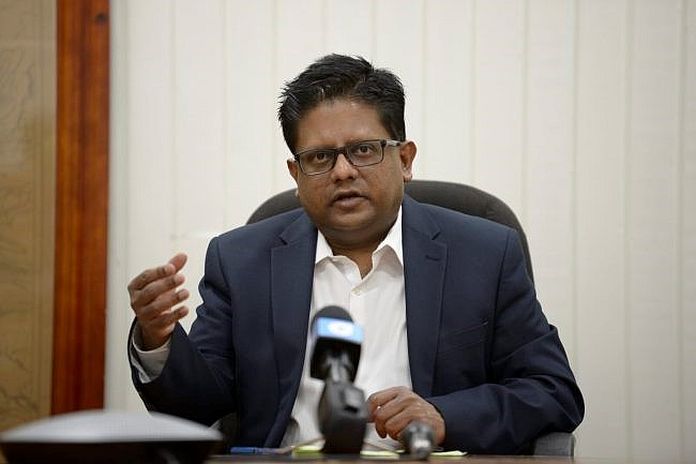By Alexis Rodney
GEORGETOWN, Guyana, (DPI) – Approximately $50 billion is expected to be pumped back into the Guyanese economy from measures announced in the 2020 and 2021 national budgets, says senior minister in the office of the president with responsibility for finance, Dr Ashni Singh.
“Many of the measures will contribute in a very significant way to stimulating economic activities and will improve the quality of life for all citizens,” he said.
Measures include:
- A reduction in the cost of basic food items;
- An across-the-board five percent reduction in water tariffs;
- Zero-rating of several construction materials;
- The restoration of zero-rated status on various food items;
- Students in public schools will each receive $15,000;
- Pensioners and persons receiving public assistance will now receive $25,000 and $12,000 respectively.
The government has also facilitated an increase in the low-income mortgage loan ceiling, as well as an increase in housing loans at the New Building Society, among others.
Prior to the government’s emergency budget in September 2020, president, Dr Mohamed Irfaan Ali announced over 40 measures that would bring economic relief to Guyanese and various sectors.
“Taken together, we anticipate the measures in the 2020 and 2021 budget will place in the hands of households and businesses in Guyana, an additional $50 billion,” Dr Singh said in his review of this year’s budget late last week.
The finance minister said the 2020 emergency budget, had only a three-month effect of the measures for that year. He said the measures had to first be “annualised” to get the full year effect.
“If you consider what that means, the potential that has to stimulate and generate economic activity, and if you consider how that is going to multiply itself across the economy, you get a sense of how important it is to get the budget approved so that those benefits could be accrued,” Dr Singh added. “ One cannot look at a measure for its direct impact only, but also its multiplier effects across the economy.”
This can be seen in instances such as the payment of uniform vouchers to parents of school children, and the increase in old-age pension and public assistance. He said while the money will be placed directly in the hands of the people, the economic impact will be across the board.
“So, if you implement a measure that puts money in their hands, the vast majority of people, once they receive that increase in pension, once they receive that school voucher, they go to the markets and they spend that money. Some will save that money, they may buy an appliance for the home, they may contribute it to their mortgage or hire purchase. And then, the people that they buy goods and services from, they may, in turn, buy goods and services themselves.”
Dr Singh said, homeownership is also a stimulant to the economy. Not only has the government provided resources for new housing areas, but it has also ensured measures to reduce the cost of borrowing and raising the ceiling on low-income housing loans.
Dr Singh said: “Those initiatives together will help people afford their own homes. And every person that constructs a home also generates economic activity through job creation,” added, while still disappointed at the APNU+AFC’s behaviour towards budget 2021, “welcomes its passage and implementation.”





